Best AI Voice Cloning Tools in 2025 for Personalized Experiences
November 28, 2024

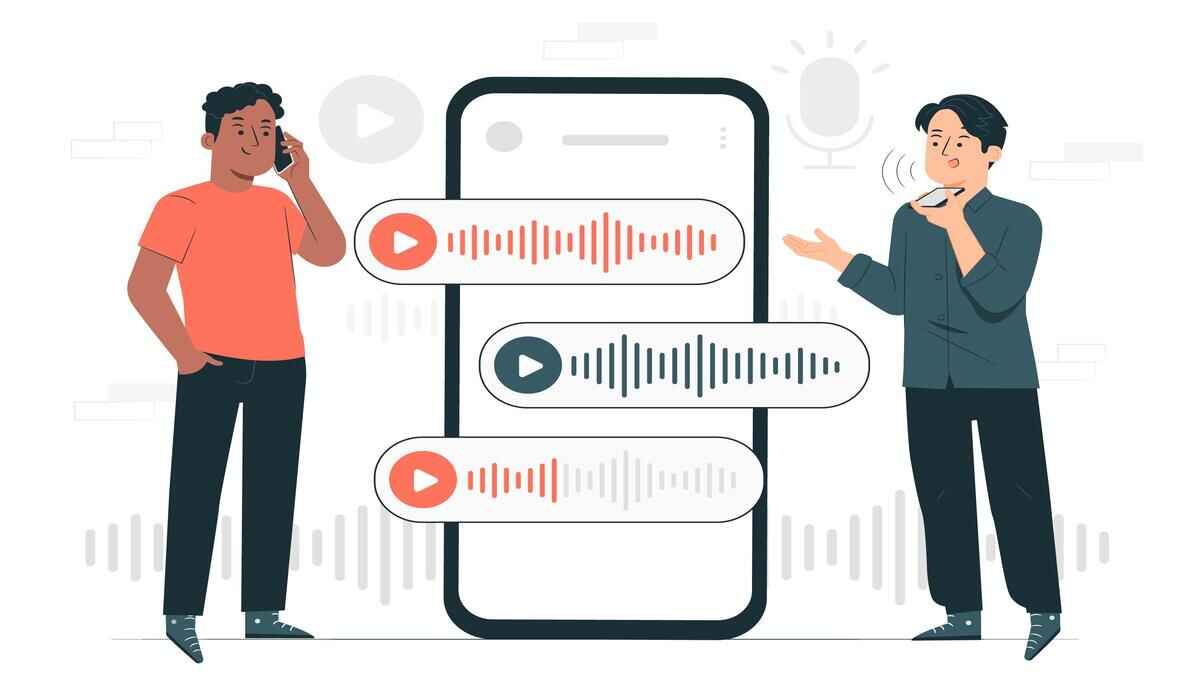
AI voice cloning, a modern technology, can revolutionize how we engage with machines and media. AI equipment can generate surprisingly practical synthetic speech via reading and replicating human voices. This generation has many applications, from developing voice assistants and dubbing overseas language content to producing customized voice messages. In this text, we can explore the competencies of AI voice cloning tools, their capability benefits, and the moral concerns surrounding their use.
To ensure the security and authenticity of documents, it’s essential to use electronic signature software. This technology allows individuals to digitally sign documents electronically, reducing the need for physical signatures and streamlining the document approval process.
AI Voice Cloning is a technology that uses artificial intelligence to accurately replicate a person’s voice. This technology involves training AI models on vast amounts of audio data to learn the nuances of a specific voice, including its tone, pitch, and accent. Once trained, the AI model can generate synthetic speech indistinguishable from the original voice.
AI voice cloning has a wide range of applications, including:
Creating voiceovers for videos, audiobooks, and other media.
I am dubbing foreign content into different languages while preserving the original voice.
We are generating audio descriptions for visually impaired individuals.
We create realistic voiceovers for video games, animation, and virtual reality experiences.
I am tailoring voice assistants and other AI-powered devices to individual preferences.
Speech data is converted into text, and machine learning models reconstruct the voice using text inputs.
Foundational for creating personalized voices and dynamic audio content.
Google Cloud TTS, Azure Speech Services.
Analyze sequential audio data for temporal patterns.
Extract local features from voice waveforms.
They are used in modern architectures like Tacotron and WaveNet for high-quality voice synthesis.
High realism and adaptability in voice output.
Systems analyze input voices’ pitch, tone, intonation, and cadence to replicate natural speech patterns.
Mel-spectrograms are often used to visualize and synthesize these features.
A type of AI where two networks (generator and discriminator) work together to create more realistic synthetic voices.
They are used in advanced tools to improve naturalness in cloned voices.
Breaks speech into phonemes (smallest sound units) to better replicate accents and unique speaking styles.
Enables multilingual and accent-sensitive voice synthesis.
Allows cloning with minimal audio data (a few seconds to a minute).
Reduces the need for extensive datasets.
Lyrebird and Resemble AI.
A powerful model from DeepMind synthesizes speech at the waveform level for highly detailed audio.
Used to mimic human-like voice characteristics and reduce robotic sound.
Replicates emotional nuances and expressions for storytelling or gaming.
Sonantic and Respeecher focus on this aspect.
Expands training data by introducing variations like different accents or noise levels, improving model robustness.
Creates voices that adapt to various environments and speaking styles.
Systems trained across multiple languages to support global applications.
Amazon Polly and Google TTS.

We have an advanced voice cloning platform with emotional tone customization and multilingual support.
Accurate voice replication, emotional tones, and API integrations.
Custom professional voices can be costly.
Starts at $1/month for basic plans and $99/month for professionals.
Offers customizable voices for audio branding, education, and content creation.

User-friendly, expressive speech capabilities.
Limited video import size.
Free tier available; Pro plan $29–$99/month.
High-quality text-to-speech and voice cloning platform.
Excellent audio quality multilingual support.
Limited features on the free tier.
Plans start at $14.85/month.

Combines text-to-speech with AI video creation for efficient multimedia production.
Versatile for content creators.
Premium pricing.
Starts at $28/month.
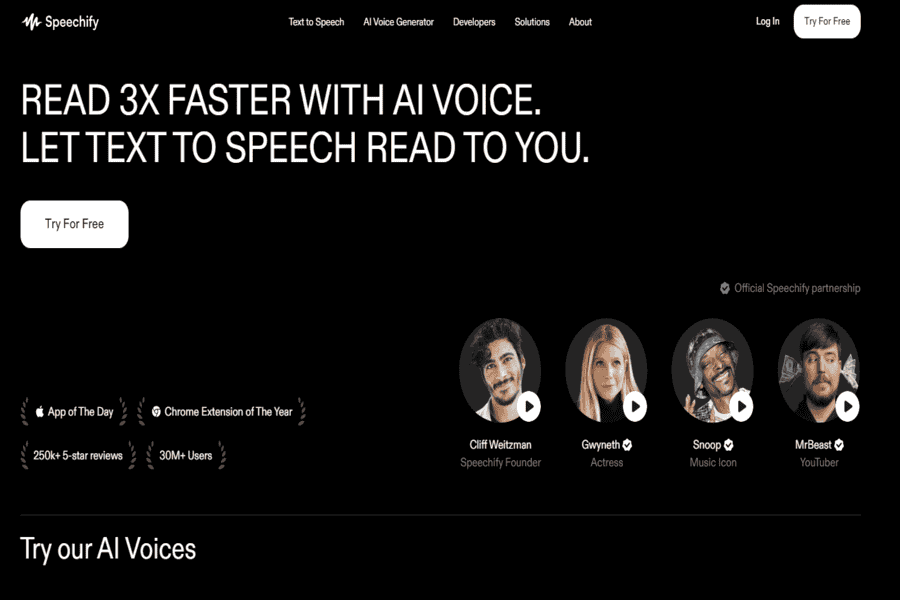
Easy-to-use voice cloning focused on natural-sounding voices for audiobooks and more.
Celebrity voices, customizable accents.
Cloning features only on the Pro plan.
$24/month.
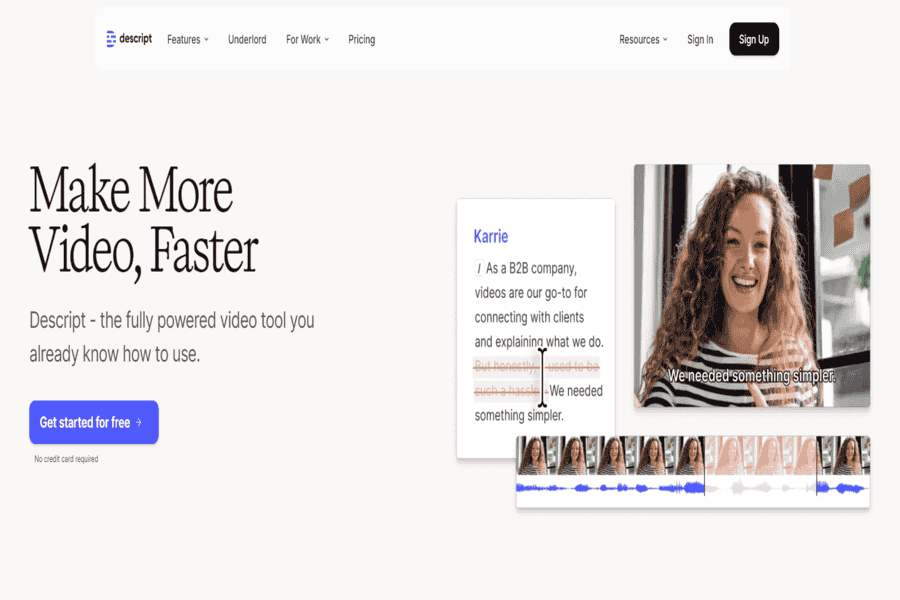
Synthesizes voices for video/audio editing with text-to-speech features.
Excellent for editing corrections.
Limited voice features compared to dedicated tools.
Free trial available; paid plans from $12/month.

Converts text into lifelike speech with multilingual support.
Batch processing, customizable accents.
More advanced features in lower tiers.
$19–$79/month.

Deep learning-based rapid voice cloning.
High-fidelity voice replication.
Limited customization options.
Custom quotes.
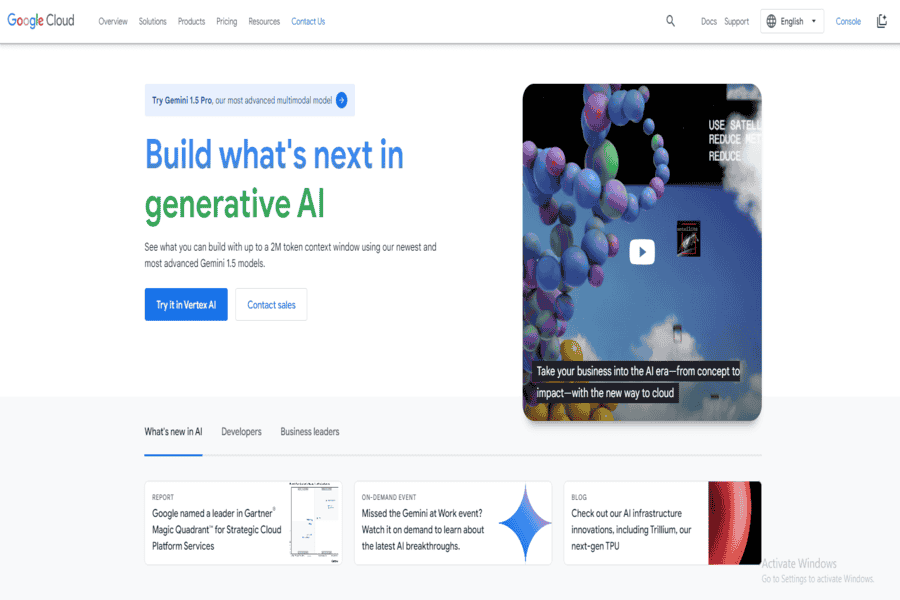
Offers scalable text-to-speech API with advanced voice synthesis.
Reliable, wide range of voices.
Complex for beginners.
Pay-as-you-go.
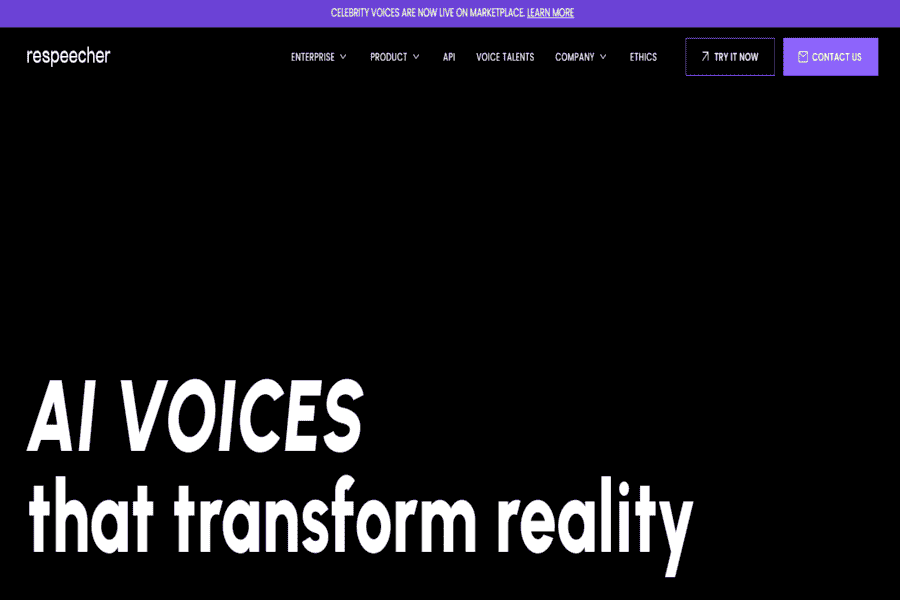
Hollywood-grade voice cloning tool for creative industries.
Supports multiple languages and natural-sounding voices.
Custom voice creation is expensive.
Custom quotes.
Easy-to-use voice synthesis with various accents and languages.
Affordable, dynamic voice modulation.
Limited free-tier features.
$30+/month.

Simple voice cloning for multimedia projects.
Intuitive interface, batch processing.
There is limited customization in the free tier.
Starts at $10/month.

Offers voice cloning for accessibility and media applications.
Easy setup, multilingual support.
Less natural output than competitors.
$50/month.
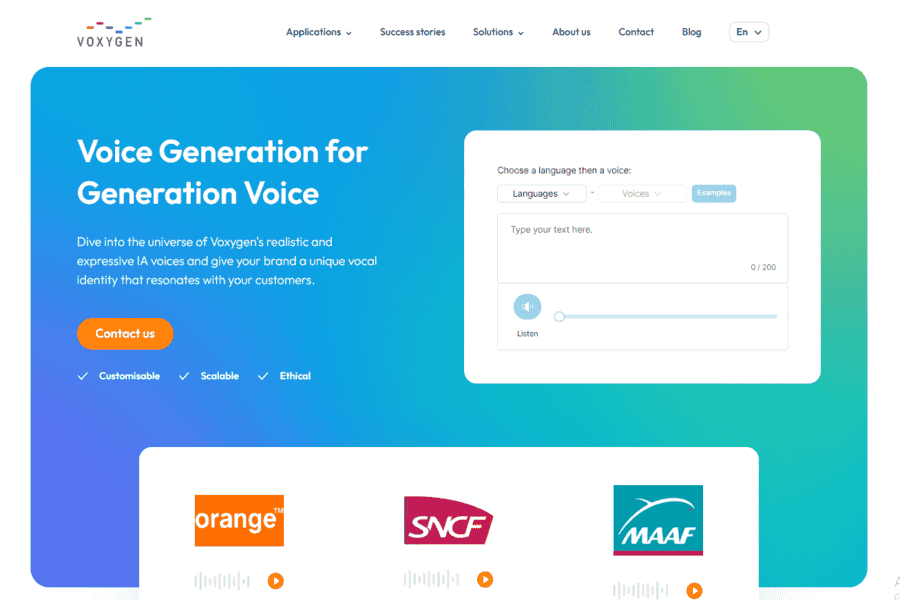
High-quality text-to-speech for industries like gaming and telecom.
Professional-grade voices.
Steeper learning curve.
Contact for quotes.
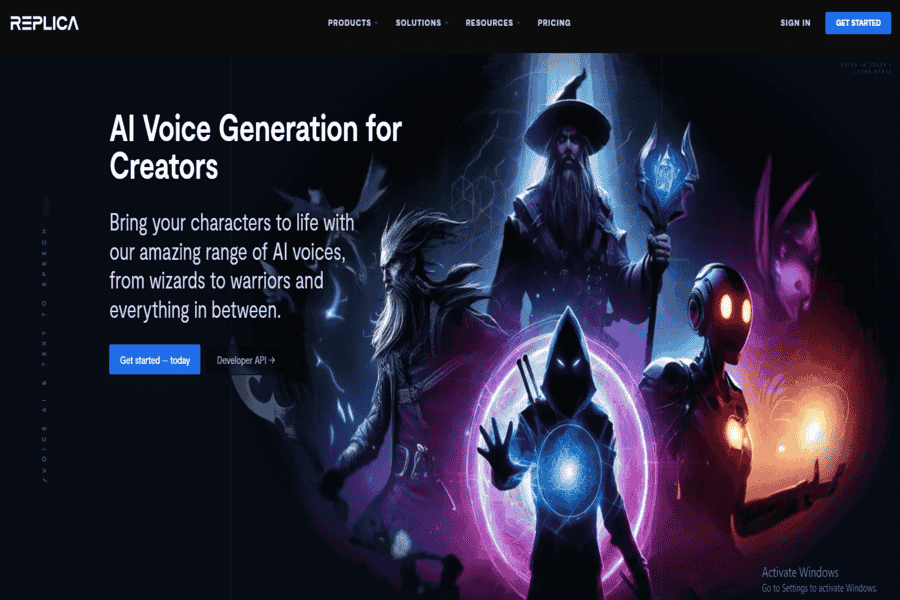
AI voice acting tool for game developers and filmmakers.
Specialized for character dialogue.
Niche applications.
$24/month.

Advanced voice manipulation and cloning tool.
High control over pitch and tone.
Requires advanced audio knowledge.
Custom plans.

Real-time voice transformation and cloning.
Fun and engaging for casual users.
Limited professional use.
Free, with paid features.
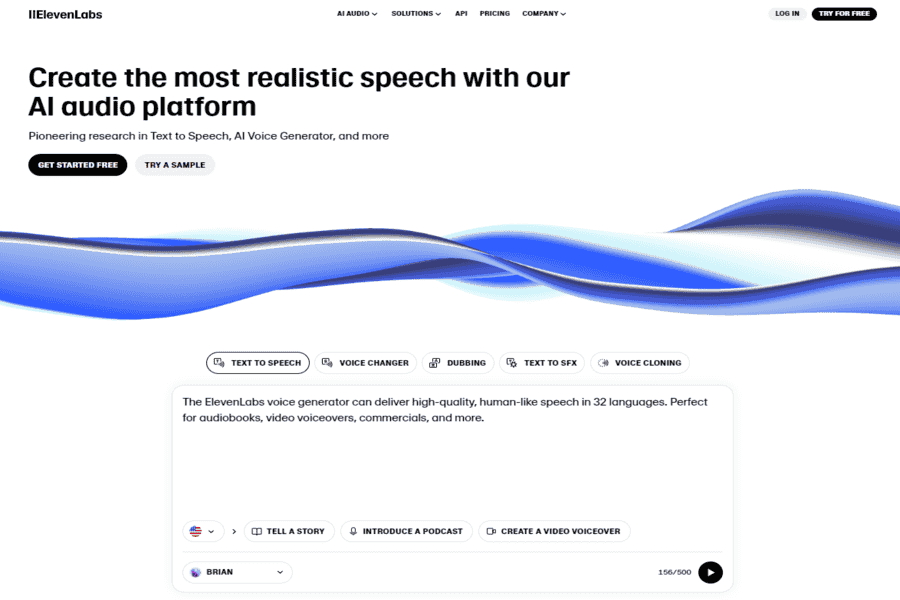
AI-driven voice synthesis for storytelling.
Excellent for audiobooks.
Expensive.
$22+/month.
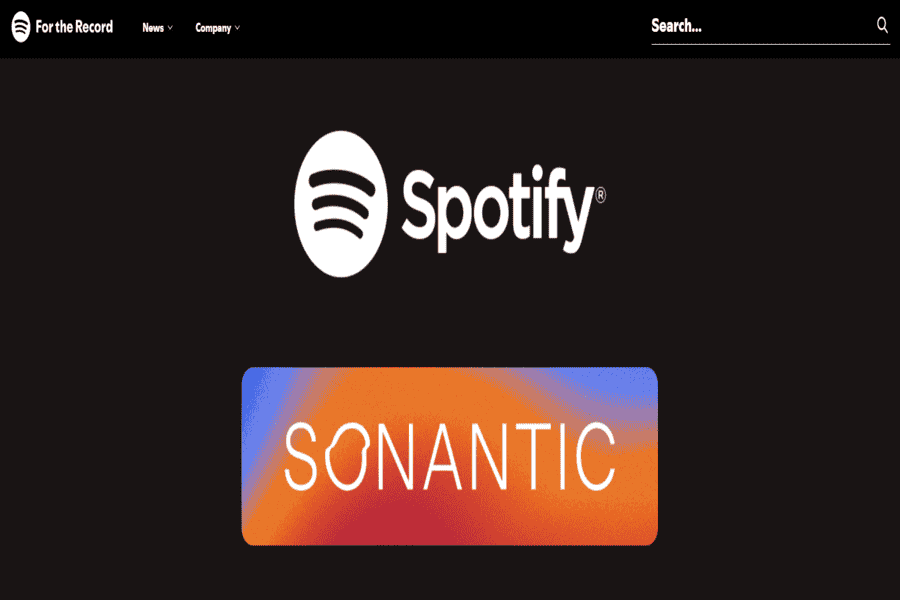
AI-driven emotion-based voice cloning.
Realistic emotional tones.
Limited customization for new users.
Contact for pricing.
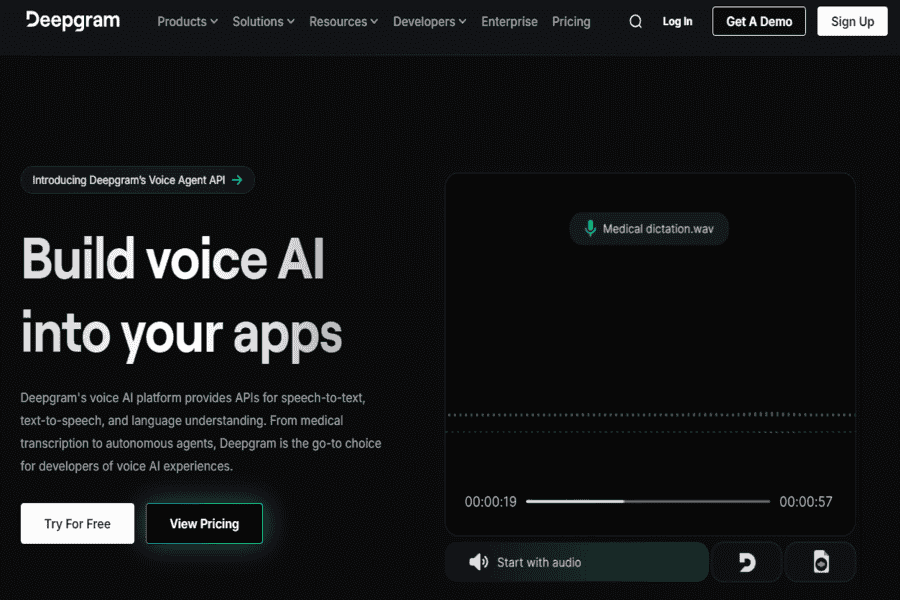
Voice cloning with a focus on AI transcription.
Excellent for speech-to-text.
Not dedicated to cloning.
Custom quotes.
AI voice cloning tools can potentially revolutionize our interactions with technology and media. However, it is crucial to use this technology responsibly and ethically. By addressing the challenges and ethical implications, we can harness the power of AI voice cloning to create innovative and beneficial applications. As AI advances, we can expect to see even more sophisticated and realistic voice cloning tools that will shape the future of human-computer interaction.
